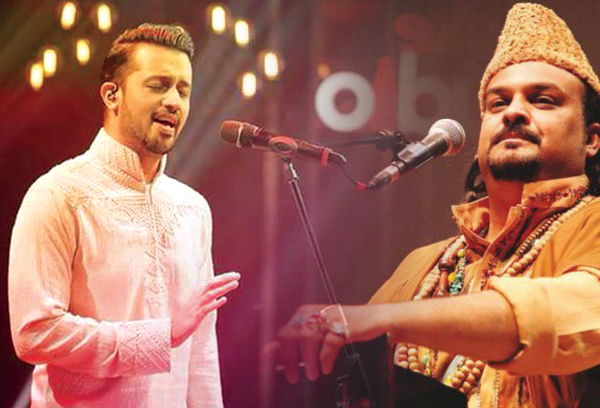
Ya Rasoolullah ba-ahwaal-e-kharaab-e-maa bi-been O King of the Holy Sanctuary, spare a glance of mercy! O Qurayshi, you who are titled Hashemite and Muttalibite! Open the eye of mercy, and cast a glance towards me, O King of the Holy Sanctuary, spare a glance of mercy!Įven we, the downtrodden, will see our days turn for the better!Ĭhashm-e-rehmat bi-kusha soo-e-man andaaz nazar Kiss the ground and convey the greetings of this sinner there! Zameen bi-bos o salaam-e-man-e-kharaab rasaan Since your destination is his holiest of all resting places, Tura maqaam ke aaraam-gaah-e-aqdas-e-oost Hadees-e-zarra-e-miskeen ba aaftaab rasaanĬarry the word of a wretched atom to the glorious sun! O morning breeze! Carry my passionate greetings to His Holiness ! Saba tahiyat-e-shauqam ba aan janaab rasaan At the same time, the other meaning is that everyone is metaphorically a beggar asking for and receiving the prophet’s alms, i.e. Since Muhammad is believed to have been generous to the poor, this qawwali mentions how he fills up the daaman of all those who come to his door. Folding up and holding one’s daaman to form a sort of pouch is a way of begging for money. Literally, a daaman would be the hem of a long South Asian garment. * The daaman that is filled refers to a concept similar to that of the jholi in “Bhar Do Jholi”. In this poem, when he fills the cups of his followers with drink, he is replenishing their spirituality. Kausar is a body of water (sometimes called a “lake-fount”) in heaven that was promised to Muhammad in a Qur’anic revelation. Specifically, he is mentioned as the wine-pourer of Kausar (or Kawthar). as the guide facilitating a close relationship with the divine. In “Tajdar-e-Haram”, the wine drinkers being called to Madinah are those who are intoxicated by a divine love for the prophet Muhammad and for God. * In Sufi poetry, concepts related to wine are often used metaphorically. * Taajdaar-e-Haram, Mustafa, Mujtaba, Sayyid, Tayyib, Saaqi-e-Kausar, Aaqa, and Arab ke Kunwar are all different names and titles used to address Muhammad. Any corrections or improvements would be appreciated.Ī few notes that might help in understanding this qawwali: I’d like to thank Ammar Kalimullah for helping with some of the more difficult parts of the translation. Since this qawwali is so complex, I have done my best to indicate the language and author of each section wherever I could. Both of these excerpts follow the Sufi theme of a person lamenting their separation from their beloved, who in the context of this qawwali is Muhammad. Furthermore, another part of this qawwali is possibly from a Purbi poem by Bhai Mardana (1459–1534), a companion of Guru Nanak. Interestingly, “Zihaal-e-Miskeen” alternates languages, with one line in Persian followed by one line in Braj Bhasha (a dialect of Hindi-Urdu). The Sabri Brothers also recite a few excerpts from “Zihaal-e-Miskeen”, a celebrated poem by Ameer Khusro (1253-1325), who was a Sufi disciple of Nizamuddin Auliya and the father of qawwali. Like Purnam’s poem, these two excerpts involve a hapless person asking the morning breeze (“Saba”) to carry his message seeking forgiveness to Muhammad’s tomb in Madinah. There are also a few lines in Arabic from a poem written by Zain al-Abideen (659-713), a descendant of the Prophet Muhammad and the fourth Shia imam.


Plus, a Persian line from the poem “Marhaba Sayyidi Makki Madani” by Muhammad Jaan Qudsi Mashhadi (-1646), the poet laureate of the Mughal Empire under Shah Jahan, is also recited.Ĭontinuing with naats, the opening and another section are by Maulana Jami (1414-1492), a Sufi theologian and poet from modern-day Afghanistan. Another Urdu naat is by the famous Pakistani poet, Muzaffar Warsi (1933-2011), who also wrote the hamd (praise of God) titled “Wohi Khuda Hai”. The primary one that they repeatedly return to, of course, is “Tajdar-e-Haram” by Purnam Allahabadi. Excerpts from quiet a few naats are recited by the Sabri Brothers. This qawwali would fall under the category of naat (praise of the prophet Muhammad), since it serves as a plea to Muhammad to bestow his mercy on the needy. It is important to note, however, that the long version by the Sabri Brothers that is translated here includes many interesting elements, in multiple languages, from several authors. The titular Urdu poem was written by Purnam Allahabadi (-2009), a prolific Urdu poet, who moved to Pakistan from Allahabad, India after the 1947 partition. “Tajdar-e-Haram” is a popular qawwali most famously performed by the late Sabri Brothers, Ghulam Farid Sabri (1930-1994) and Maqbool Ahmed Sabri (1945-2011), from Pakistan.


 0 kommentar(er)
0 kommentar(er)
